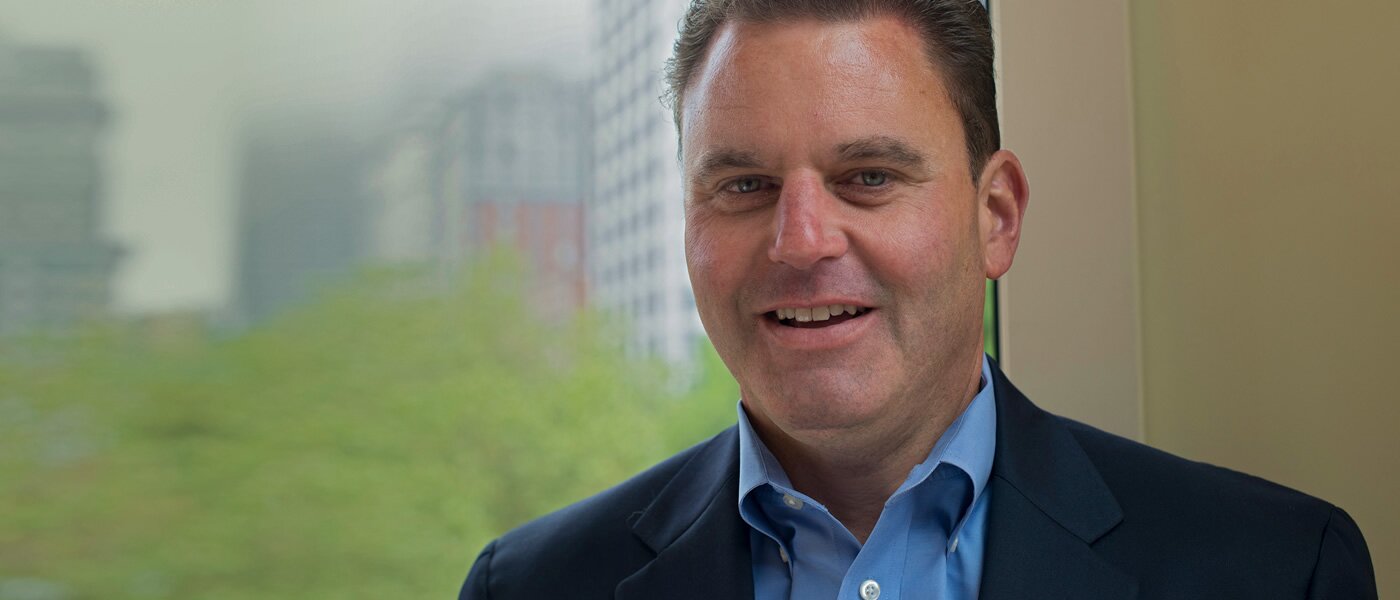
Perry England is Vice-President of Building Performance at MacDonald-Miller where his team uses the most innovative thinking and technologies to make buildings work as efficiently as possible. But for England, energy efficiency isn’t just for buildings.
England was part of Governor Jay Inslee’s task force on the Carbon Accountability Act, a policy that would limit carbon pollution and require major emitters to pay for their emissions. Now, he’s supporting the Alliance for Jobs and Clean Energy and is part of the coalition calling for a reduction in global warming pollution and more investment in Washington communities and green tech.
Why do we want to be wasteful as building owners and tenants? That doesn’t make sense. I want building owners to know about opportunities to be more energy efficient and how to get the most work out of the energy they’re consuming.
England’s company, MacDonald-Miller, is also committed to reducing emissions from its fleet of over 400 service vehicles that cover more than 35 million miles a year. By adding hybrid and electric vehicles over the past decade they’ve increased overall fuel productivity by more than 25%. “From a business standpoint we see how making smarter choices in the technologies we’re using to do our work is a big opportunity to be more competitive and profitable. Being less carbon intensive in our fuel and fleet choices is good for business,” he says.
MacDonald-Miller is looking at investing in electro-mechanical vehicles for its next generation of service vans, especially on metro routes. England sees electrifying the service fleet as a great opportunity. The technology is there, but it’s not cost-effective to adopt. “So, if a policy were put in place to offset some of that cost, we’d be one of the first adopters.”
He says putting a price on carbon in Washington State and investing that revenue in greener tech will incentivize companies like his to choose cleaner ways to work. “It will make us all more attentive and accountable to our impact on the environment, and will allow us to adopt innovations much more quickly.”
England sees opportunities for improving energy productivity in his own company and spreads that message to the building owners MacDonald-Miller works with. He says most buildings run at less than 80% efficient and in many cases it can be closer to 50%.
“Why do we want to be wasteful as building owners and tenants? That doesn’t make sense. I want building owners to know about opportunities to be more energy efficient and how to get the most work out of the energy they’re consuming,” he says. “It’s the right thing to do for our community, and for business.”

Leave a Reply